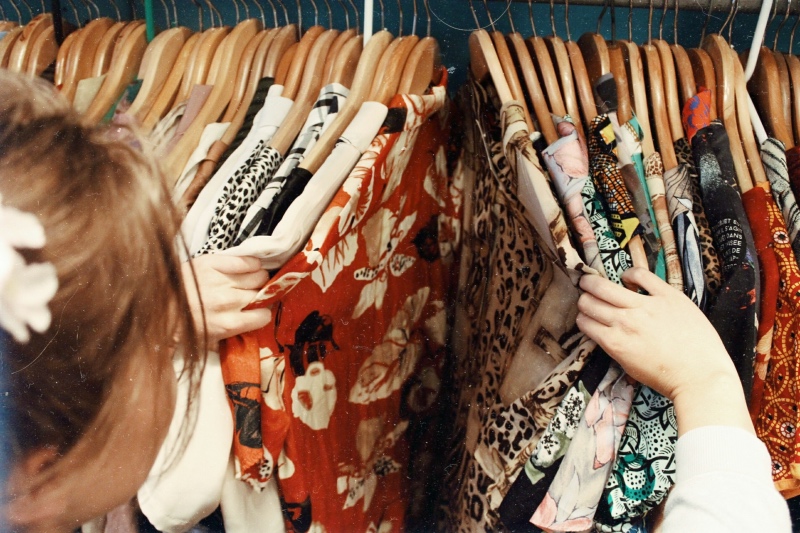Shoppers in western Europe care how clothes are made and want to be kind to workers and the environment when they update their wardrobe, according to a survey released on Wednesday that shows public pressure on fashion to clean up its act.
Yet, the shoppers faced no questions about the cost of their conscience, with manufacturers caught in a tug of war between the allure of throwaway fashion versus the expense of ethics.

PICTURE: Becca McHaffie/Unsplash.
“Brands tell us you can’t trust consumers because they say one thing but then behave differently,” said Rachel Wilshaw, ethical trade manager at British charity Oxfam.
“People will continue to be very price sensitive but if brands can find a way to offer a good product at a good price – and be transparent – I feel sure that that is going to matter more in the future,” she told the Thomson Reuters Foundation.
Less than 40 per cent of respondents to the survey said they thought of an item’s impact on society and environment before buying – but more than 70 per cent wanted information on what producers were doing to protect workers and the planet.
“People have an urgent, emotional desire to know more about how their clothes are made,” said Sarah Ditty, policy director at Fashion Revolution, an advocacy group that commissioned the survey.
Companies are facing growing scrutiny to clean up their supply chains as campaigners estimate some 25 million people are trapped in forced labour worldwide.
Fast-changing trends and cheap apparel mean big sales but critics say rising demand is fuelling labour exploitation, too.
The poll, conducted online by Ipsos MORI in October, asked 5,000 people in Britain, Germany, Italy, France and Spain what they thought of transparency and sustainability in fashion.
Eighty per cent of respondents said brands should publish the names of all factories they use to make clothing and 77 per cent said suppliers should also be listed.
One in three said it was important for companies to share details about wages and working conditions in their supply chains; 72 per cent said firms should be required to by law.
“Increasingly, consumers want to know that the workers making their clothes are getting a good deal as well,” said Martin Buttle, strategic lead at the Ethical Trading Initiative, a global network of firms, unions and labour rights groups.
The global fashion industry has come under pressure since more than 1,100 garment workers were killed in the Rana Plaza factory collapse in Bangladesh five years ago.
Yet big brands have been criticised for failing to improve conditions in often complex supply chains – from fields to factories – and turning a blind eye to worker abuse.
A study in April showed that while big fashion houses were slowly committing to revealing more about their supply chains, most still scored poorly on transparency.
“For those brands that recognise its importance, transparency is an opportunity to build trust,” Buttle told the Thomson Reuters Foundation.






